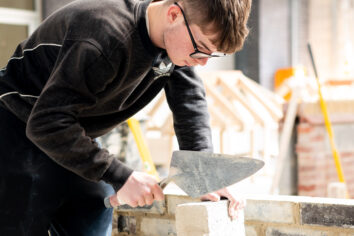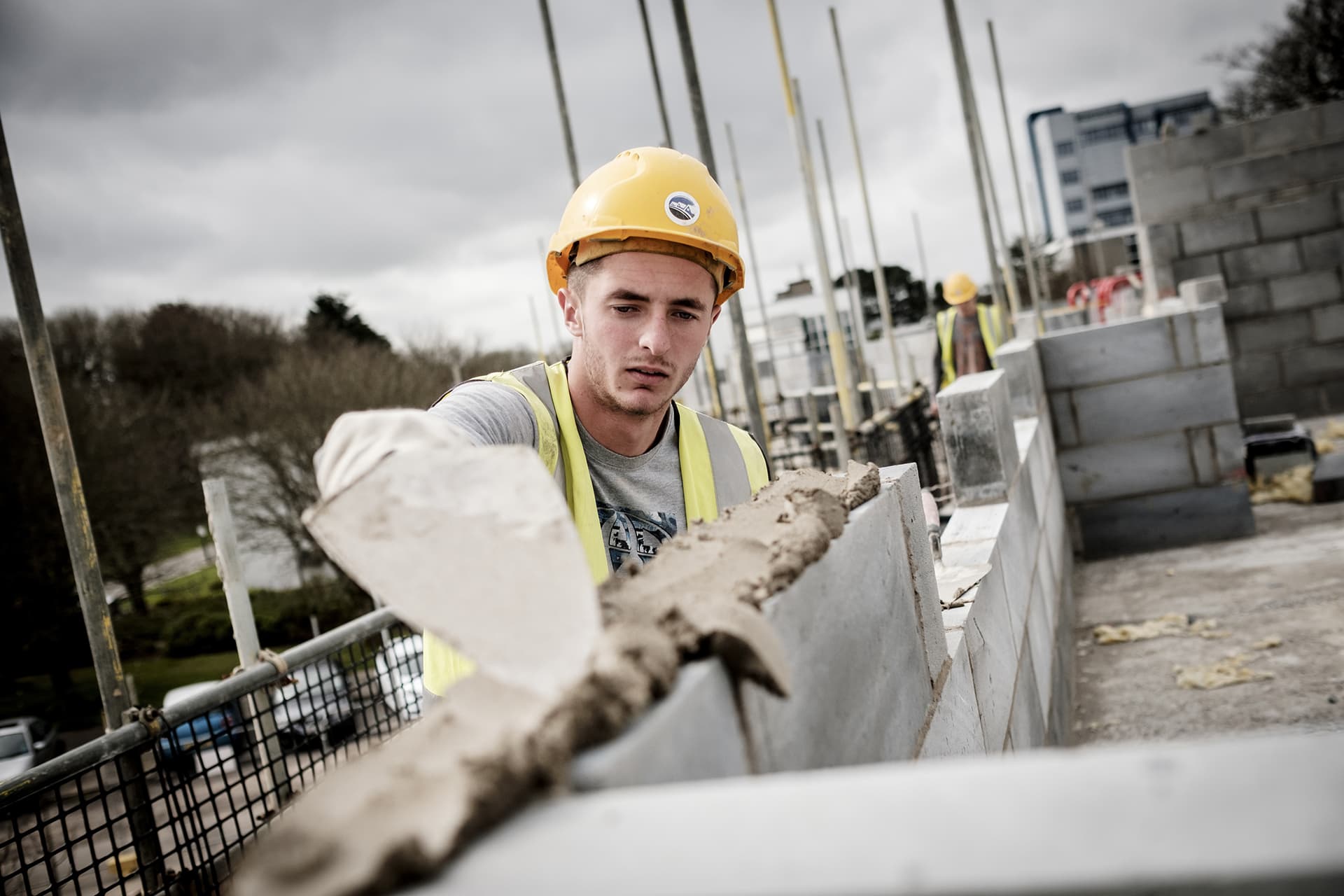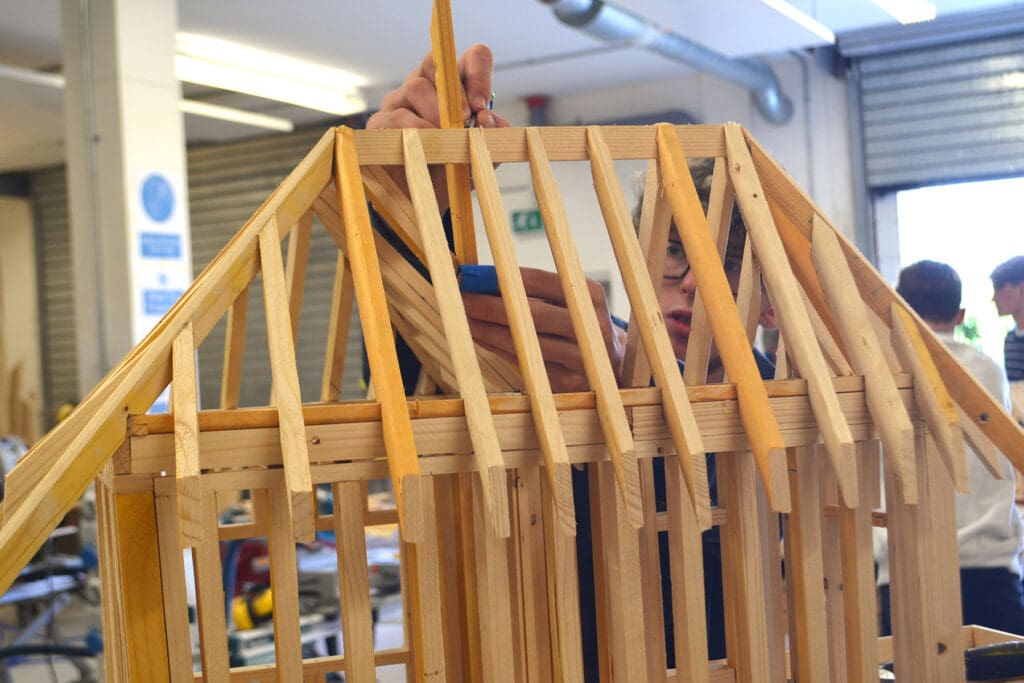All Unit-e systems are unavailable from 7.30pm on 09 September until the morning of 10 September due to essential maintenance. This includes staff, student and parent advantage, College portal payments and applications. Apologies for any inconvenience caused.
Why Choose This Course?
This apprenticeship standard is designed for individuals eager to build a career in the construction industry. Apprentices will learn to lay bricks, blocks, and other building components to construct and repair walls, foundations, and various structures. This programme covers essential skills in interpreting drawings, setting out, and adhering to health and safety regulations. Employers benefit from having skilled bricklayers who can contribute to a wide range of projects, from new builds to restorations. This apprenticeship is ideal for those looking to develop practical skills and gain valuable experience in a high-demand trade.
Apply for this course
Start date: 20/10/2025
Top Course Highlights
Industry-standard facilities
Highly experienced tutors
Develop skills in line with industry needs

Learn from sector experts
Gain invaluable insights and hands-on experience from industry expert tutors who bring real-world knowledge and expertise to the classroom. Their guidance will help you develop the skills and confidence needed to excel in your chosen field.

Develop work-related skills
Enhance your practical abilities and gain hands-on experience that directly translates to the workplace. This apprenticeship course focuses on real-world applications, ensuring you are well-prepared to meet the demands of your chosen career.

Enjoy professional surroundings
Immerse yourself in a dynamic and supportive environment that mirrors the professional world. This apprenticeship course provides access to state-of-the-art facilities and resources, helping you to thrive and feel confident in your career journey.
WHAT WILL I LEARN?
Knowledge Apprentices will gain a thorough understanding of key principles in bricklaying, including the properties and uses of different materials such as bricks, blocks, and mortar. They will learn about various construction techniques, including how to build walls, foundations, partitions, and arches. The apprenticeship also covers essential health and safety regulations, ensuring apprentices can work safely on construction sites. Additionally, apprentices will be taught effective communication and customer service skills, enabling them to interact professionally with clients and colleagues. This comprehensive knowledge base prepares apprentices for the practical and theoretical challenges of a career in bricklaying
Skills Apprentices will develop a range of practical skills essential for bricklaying, including the ability to construct and repair walls, foundations, partitions, and arches using bricks, blocks, and mortar. They will learn to read and interpret technical drawings and specifications accurately. The apprenticeship also emphasizes the importance of adhering to health and safety regulations, using personal protective equipment (PPE), and following environmental and sustainability guidelines. Additionally, apprentices will be trained in effective communication and teamwork, ensuring they can collaborate efficiently on construction sites. These skills prepare apprentices to meet the demands of the bricklaying profession and excel in their roles.
Behaviours Apprentices should exhibit reliability, productivity, and a positive attitude. Attention to detail, commitment to quality, and adherence to health and safety regulations are essential. Effective communication and teamwork are also crucial for success in the bricklaying profession.
Typical Duties that an Apprentice will carry out in the workplace:
- Constructing and repairing walls: Using bricks, blocks, and mortar to build and fix walls, foundations, partitions, and arches.
- Setting out work areas: Measuring and marking out the area for construction according to plans and specifications.
- Preparing mortar: Mixing mortar to the correct consistency for various types of bricklaying tasks.
WHERE WILL IT TAKE ME?
Completing the Bricklayer Apprenticeship Standard opens up a range of career opportunities in the construction industry. Apprentices can advance to roles such as Lead Bricklayer or Foreman, Construction Supervisor or Manager, and even Industry Consultant or Trainer. The growing demand for skilled bricklayers in the UK ensures strong job prospects and career stability.
Assessment Arrangements
The End-Point Assessment (EPA) is a crucial component of apprenticeship standards, designed to evaluate an apprentice’s knowledge, skills, and behaviours (KSBs) acquired during their training. The EPA typically includes a combination of practical assessments, professional discussions, and portfolio reviews, ensuring apprentices are fully prepared for their chosen career. This assessment is carried out independently by an End-Point Assessment Organisation (EPAO), ensuring impartiality and fairness. Employers play a key role in confirming readiness for the EPA, supporting apprentices throughout the process to achieve successful outcomes.
EPA (End Point Assessment) methods
- Multiple Choice Knowledge Test
- Practical Skills Assessment with Questions
- Professional Discussion (Interview) underpinned by a Portfolio of Evidence
Entry Requirements
Grade 2 GCSE (E) in English and Maths.
Additional Information
We provide all of the tools and materials for the course, however you will be responsible for your own PPE and will be required to come equipped with a pair of steel toe capped boots and a pair of safety glasses.
Meet the staff, tour the campus and find out about life as a student at one of the best colleges in the country.








